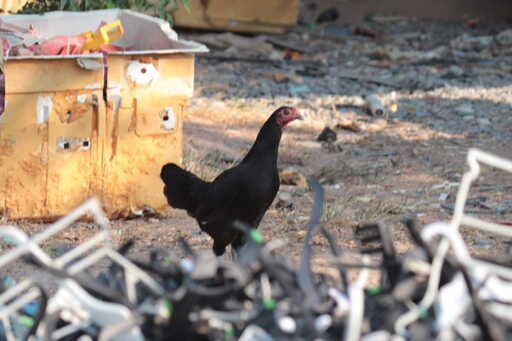A recent study has found “alarming” levels of toxic chemicals in free-range eggs around the globe. The finding is based on more than a decade of analyses of eggs on five continents which detected free-range eggs contaminated with globally banned flame retardants, and particularly brominated dioxins, which are toxic to human health and the environment. E-waste sites, dumpsites, and waste incinerators are key sources of these pollutants, with eggs tested in their vicinity found to be severely contaminated by chemicals released when plastic waste is burned. Eggs sampled near an e-waste site in Ghana in 2019, for example, had levels of brominated and chlorinated dioxins 200 times higher than the safety standard for food. Intentional production and use of dioxins has been eliminated or severely restricted worldwide under the UN Stockholm Convention on Persistent Organic Pollutants (POPs). The study, published in the journal Emerging Contaminants, was led by the International Pollutants Elimination Network (IPEN), along with Arnika, and an international team of scientists. The research was far-reaching, with free-range egg toxicology data gathered in many developing countries, and countries with economies in transition, in Africa, Asia, North and South America and Europe. The findings are extremely concerning, say the study authors, as eggs are an important source of protein in low and middle-income countries, with the study indicating these toxic chemicals are entering the food chain. “We know from decades of studies that dioxins are some of the most toxic chemicals that we are aware of,” says Therese Karlsson, a…This article was originally published on Mongabay
From Conservation news via this RSS feed


